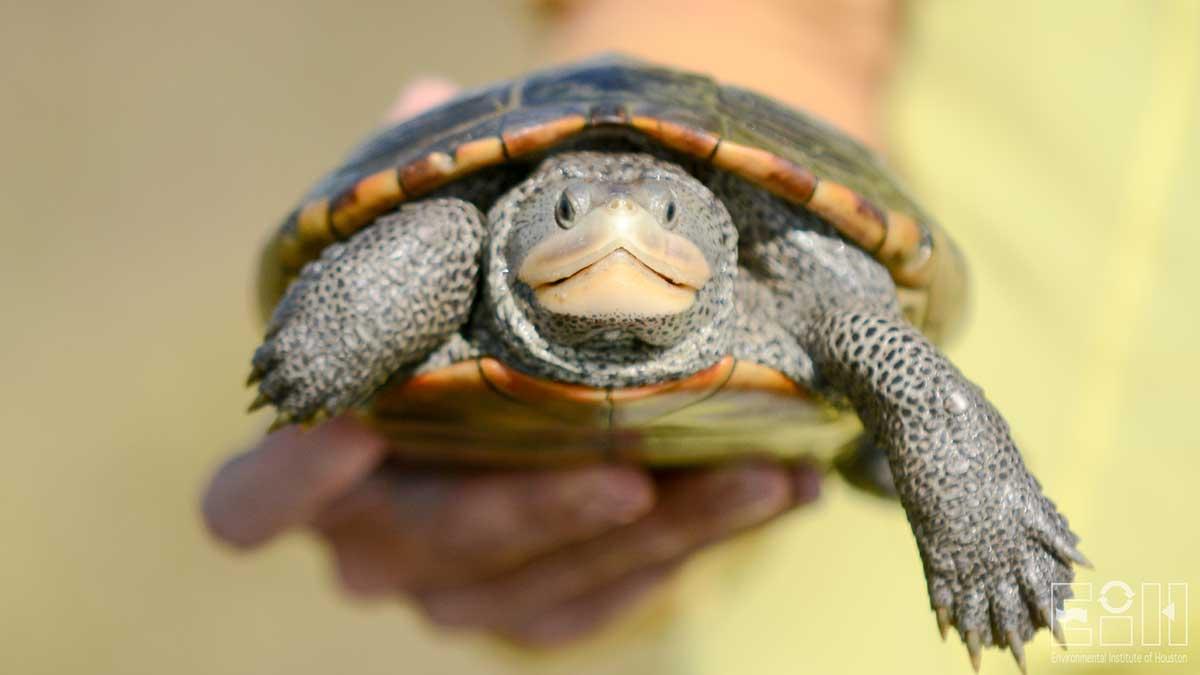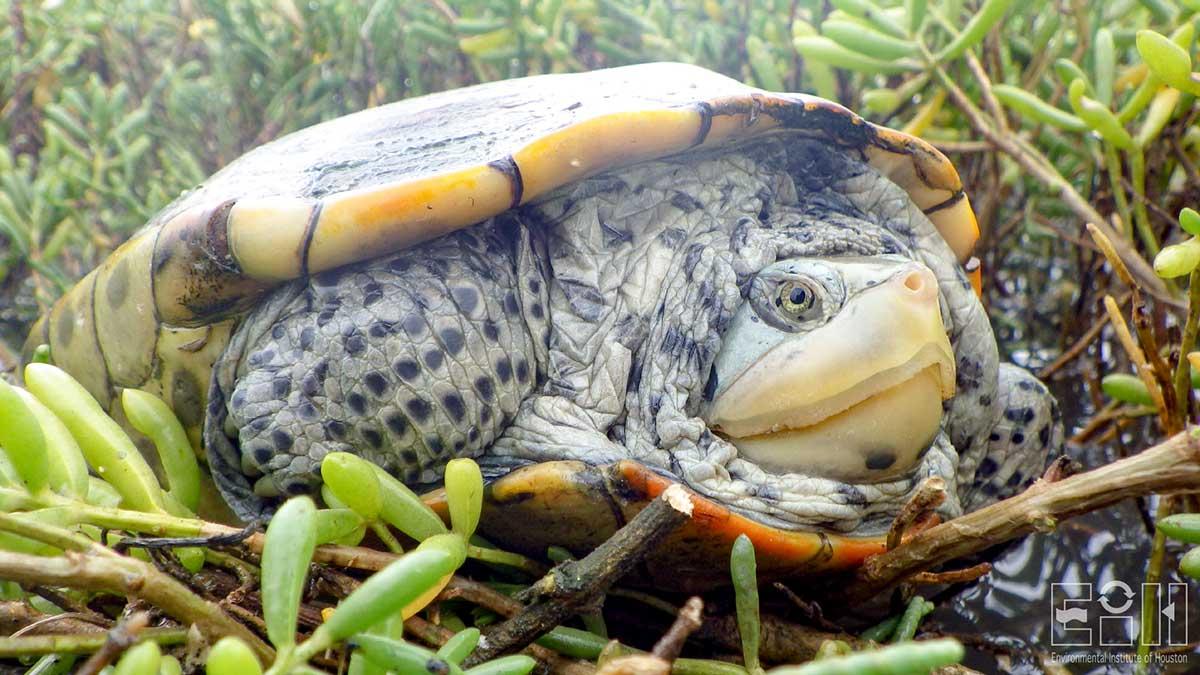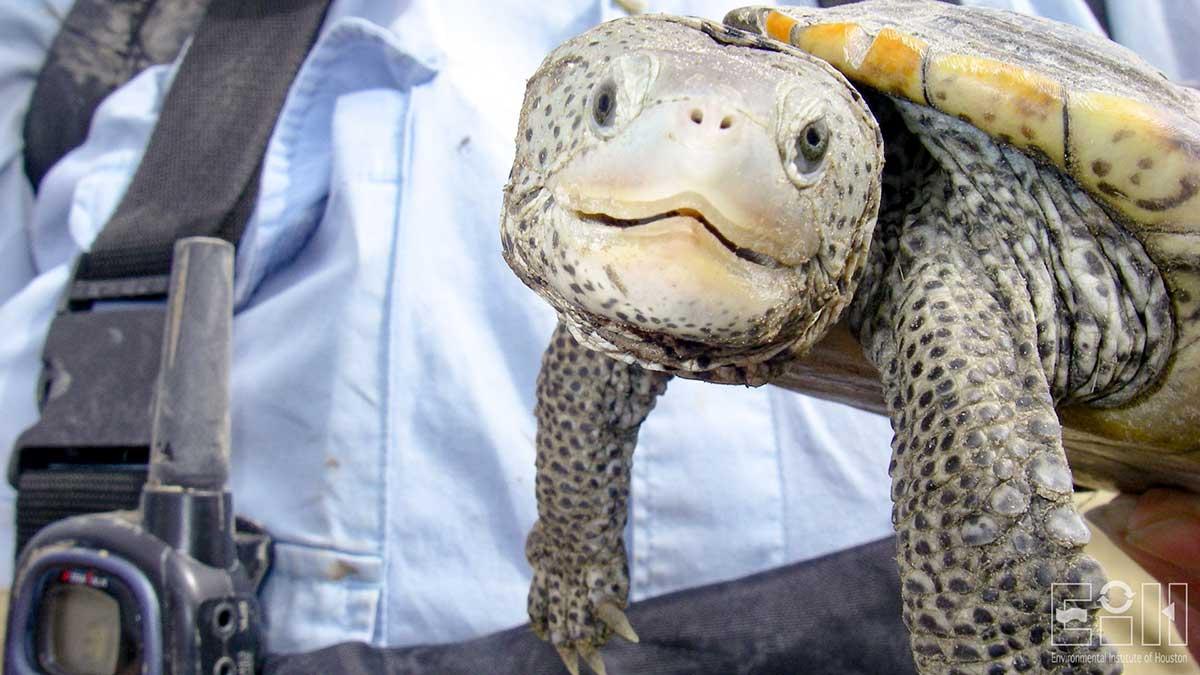
Adopt a Terrapin
A gift for the turtle lover in your life!
Your $25 donation will directly support student research on terrapins in Texas. Adopt a terrapin and you will have the honor of naming it. You'll receive a personalized certificate featuring a wild terrapin's photo and information about its release location, weight, and size. Your contribution makes a significant impact—helping protect these fascinating turtles and advancing scientific knowledge.
To donate online*, use the Give to EIH button and then follow the steps below:
- Enter EIH into the Search Funds field
- Select EIH Environmental Institute Terrapin from the results
- Choose your donation amount ($25 per terrapin)
- Follow the step-by-step prompts to complete your donation.
- Complete the Adopt-a-Terrapin donation form (PDF).
- Use this form to name your terrapin and for other ways to donate
- Email to eih@uhcl.edu or mail to
University of Houston-Clear Lake
Environmental Institute of Houston
Attn: Adopt-a-Terrapin
2700 Bay Area Blvd, Box 540
Houston, TX 77058
*Online donations: After we receive your completed adoption form and have confirmation of your online donation, the certificate(s) will be mailed to the address provided.
About Terrapins
The diamond-backed terrapin is the only turtle species to live exclusively in brackish water. Because of their limited distribution and unique life history, the Texas subspecies (Malaclemys terrapin littoralis) may be an important indicator species for Texas bays. Various sources of mortality have been identified including habitat loss, crab trap bycatch, power plant intakes, vehicular impacts, and boating impacts. Little information has been gathered on the numbers or health of local Texas populations.
Texas diamond-backed terrapin research by the Environmental Institute of Houston is currently taking place in marsh areas along the upper and central Texas coast. Help the Environmental Institute of Houston continue to research and protect the Texas diamond-backed terrapin by symbolically adopting a terrapin!
Our Research Projects
- Critical Life History Parameters of the Texas Diamond-backed Terrapin, 2007–present
- Bycatch Study of Texas Commercial Blue Crab Fishery, 2012–2013
- Population Status and Demographics of the Texas Diamondback Terrapin, 2010–2011
- Mid-Texas Coast Complex Texas Diamondback Terrapin Ecology, 2010
- Distribution and Demographics of the Diamondback Terrapin in Galveston Bay, 2007–2009
Have you seen me?
We are always looking to find new terrapin populations along the Texas coast. If you have spotted one of these turtles, please let us know! Call our main office at 281-283-3950 or email eih@uhcl.edu with the following information:
- Your contact information
- Date and time of spotting
- Specific location (GPS coordinates if available)
- Any pictures you may have taken
Please do not pick up or disturb any of the terrapins you may see. Thank you!









